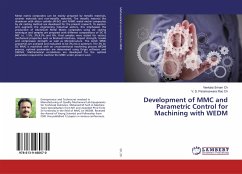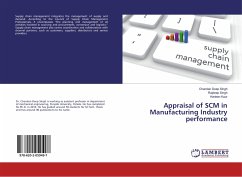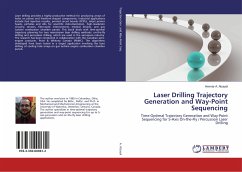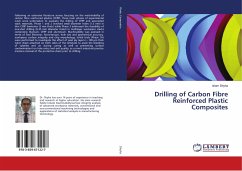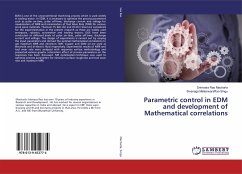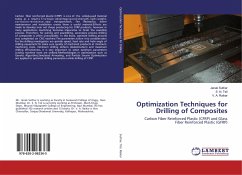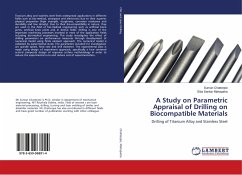
A Study on Parametric Appraisal of Drilling on Biocompatible Materials
Drilling of Titanium Alloy and Stainless Steel
Versandkostenfrei!
Versandfertig in 6-10 Tagen
36,99 €
inkl. MwSt.

PAYBACK Punkte
18 °P sammeln!
Titanium alloy and stainless steel finds widespread applications in different fields such as bio-medical, aerospace and electronics due to their superior physical properties (high strength, toughness, corrosion resistance and durability and low density). Due to their bio-compatibility in nature, they are used in the field of bio-medical engineering such as artificial bone joints, artificial knee joints and in dental fields. Drilling is one of the important machining processes involved in most of the application fields including bio-medical engineering. This study investigates the effect of dri...
Titanium alloy and stainless steel finds widespread applications in different fields such as bio-medical, aerospace and electronics due to their superior physical properties (high strength, toughness, corrosion resistance and durability and low density). Due to their bio-compatibility in nature, they are used in the field of bio-medical engineering such as artificial bone joints, artificial knee joints and in dental fields. Drilling is one of the important machining processes involved in most of the application fields including bio-medical engineering. This study investigates the effect of drilling parameters on performance measures through development of numerical model using finite element approach. The numerical model is validated by experimental study. The parameters included for investigation are spindle speed, feed rate and drill diameter. The experimental plan is made using design of experiment approach, specifically a face centered central composite design of response surface methodology in order to reduce the experimental runs and reduce cost of experimentation.



